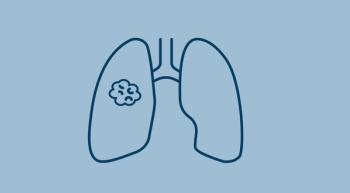
An initiative in Florida will monitor cancer recurrence at a state-level, setting the bar for recurrence data collection and research.

An initiative in Florida will monitor cancer recurrence at a state-level, setting the bar for recurrence data collection and research.

An oncology nurse initiative increased the rate of end-of-life discussions in patients with advanced cancer.

Patients with unresectable pancreatic cancers and cholangiocarcinoma face poor prognoses, but systemic treatment continues to evolve.

With a follow-up of 11.7 months, the estimated 12-month progression-free survival rate was 81% in patients who received neoadjuvant olaparib for BRCA-positive ovarian cancer.

At a median follow-up of 33.3 months, the median overall survival was not evaluable with cemiplimab, vs 20.7 months with chemotherapy alone, in this patient subset.

The antibody-drug conjugate trastuzumab deruxtecan has demonstrated clinical activity among patients with uterine carcinosarcomas, regardless of HER2 expression level.

In a subset of patients with KRAS G12C–mutated non–small cell lung cancer, adagrasib yielded an overall response rate of 68%.

Olanzapine demonstrated efficacy in improving appetite and weight gain in patients receiving cytotoxic chemotherapies.

Access to hospice and palliative care is lacking in many low- and middle-income countries.

Nivolumab/ipilimumab may offer superior overall survival to those with non–small cell lung cancer and solid tumor histology vs acinar histology.

Drama therapy may be a unique approach to help patients with cancer express themselves and improve their emotional well-being. It can also help health care professionals improve their communication skills.

Among 22 patients with cervical cancer, the objective response rate with toripalimab, bevacizumab, and platinum-based chemotherapy was 77.3%.

Kristin Daly, MSN, ANP-BC, AOCNP, discusses pathogenic variant testing and what it means for oncology nurses.

A doublet regimen of enfortumab vedotin and pembrolizumab has received accelerated approval for cisplatin-ineligible patients with locally advanced or metastatic urothelial cancer.

Lindsay Diamond, MSN, AGNP-C, AOCNP, discusses findings from CheckMate 274 and other data presented during the 2023 ASCO Genitourinary Cancers Symposium.

Isabel Octaviano, RN, details her role and experiences supporting patients during clinical trials.

Patients with ovarian cancer who received hyperthermic intraperitoneal chemotherapy with cytoreductive surgery did not experience worse health-related quality of life, according to investigators.

At a median of 44.1 months follow-up, the median event free survival was not reached with nivolumab plus chemotherapy vs 21.1 months with chemotherapy alone.

Dostarlimab met its primary end point in the phase 3 RUBY trial by increasing the 2-year progression-free survival rate to 36.1%, compared with 18.1% with placebo.

This and previous research from the Sethi Lab suggest Sox9 is a promising therapeutic target for colorectal cancer.

Physicians, clinicians and executive leaders of Florida Cancer Specialists & Research Institute, LLC (FCS) are joining industry experts from across the U.S. to envision the next 20 Years of Oncology Care.

Every year, Huntsman Cancer Institute receives funding from the American Cancer Society to support the promising research of junior faculty.

Rachel Ceballos, PhD, has been appointed senior director of community outreach and engagement at Huntsman Cancer Institute at the University of Utah .

Neeraj Agarwal, MD, is now a distinguished member of the Fellows of the American Society of Clinical Oncology.

A study in the Journal of The National Cancer Institute Cancer Spectrum looked at chatbots and artificial intelligence (AI), as they become popular resources for cancer information.


Adding cemiplimab to platinum-doublet chemotherapy improved overall and progression-free survival in patients with advanced non-small cell lung cancer.

Arash Rezazadeh Kalebasty, MD, discusses the rates of dose reduction and treatment discontinuation for patients with hormone-sensitive prostate cancer receiving combination therapy with darolutamide.

Oncology nurse experts review their experiences with newcomers for the treatment of advanced endometrial cancer and exchange best practices in caring for this population.

Patients with non-small cell lung cancer harboring exon 20 insertion mutations whose disease progressed after platinum-based chemotherapy continued to show responses to amivantamab in a long-term analysis of the CHRYSALIS trial.